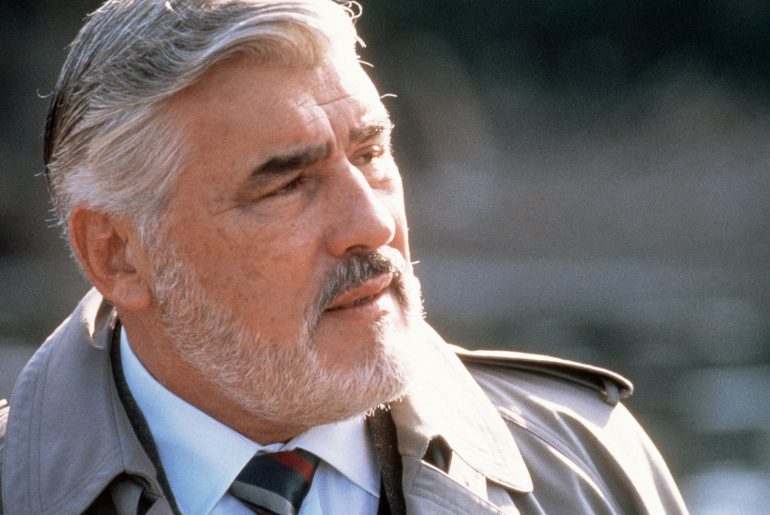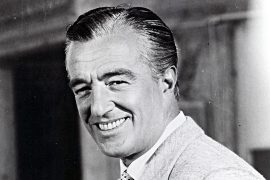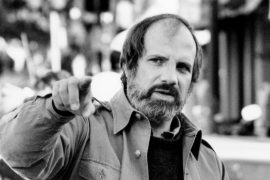The Swiss-born German actor, radio play speaker and author is one of the top German character actors. He celebrated his international breakthrough in 1957 with the embodiment of the mass murderer “Bruno Lüdke” in the Siodmarks film “Night, when the devil came”. He has lived and worked mainly in Italy since the 1960s. He celebrated his greatest successes with films such as “The Tin Drum”, “Momo” and “Rossini”. A fruitful collaboration with director Dieter Wedel followed in the 1990s; this occupied Adorf in the leading roles in his miniseries such as “The Great Bellheim” (1992), “The Shadow Man” (1995) or “The Semmeling Affair” (2002). During his long acting career, in which he played leading roles in over 70 cinema productions, Mario Adorf was honored with the most prestigious film awards…
Mario Adorf was born the son of a Roman doctor and Alice, an Alsatian radiographer, on September 8, 1930 in Zurich, Switzerland.
Adorf had only seen his father once in his life. He was raised by his mother in the Eifel and partly grew up in a Catholic orphanage. From the experiences of the orphanage came his confession: “I’m anti-religious and anti-political, I don’t believe in power games and I don’t believe in a personal God.” He wanted to be a teacher and studied German and philosophy from 1950 onwards. He soon gave up his studies, because Adorf had meanwhile come to the Schauspielhaus in Zurich via the student stage. There he had his first extra roles and assistant directors. From 1953 to 1955 Adorf attended the Otto Falckenberg School in Munich. After that he was a member of the ensemble of the Munich Kammerspiele for seven years until 1962. There he was influenced by the actor Friedrich Domin and the director Fritz Kortner. In 1954, Adorf had his first major appearance in the film “08/15”. In 1957 he received the Federal Film Prize for his role in “Night, When the Devil Came”.
In 1958 he received the German Film Critics’ Prize and again the Federal Film Prize for “The Doctor from Stalingrad”. Although Adorf had made the breakthrough with it, the cinema fell into a deep crisis towards the end of the 1950s, and productions were severely restricted. In this situation, the actor went to Hollywood, where he got his first film role in the western “Major Dundee”. Adorf was thus committed to the Mexican type. Adorf moved to Italy in the early 1960s. Here he repeatedly played the role of the villain, such as in “Winnetou I” and in “The Dead Ship”. In the 1970s, Adorf took on a character role in “The Ermordation Matteottis”, a classic by Volker Schlöndorff. This was followed by important roles in “The Lost Honor of Katharina Blum” and in the film adaptation of Günter Grass’ novel “The Tin Drum”. In his later roles, the villain became the father figure and the smart businessman: Adorf played the department store king in “The Great Bellheim”. For this role he received the Adolf Grimme Prize in gold.
In 1996, the title “Der Schattenmann”, in which Adorf took part, ran on television with great success. In the same year, the three films “Everything just camouflage”, “Miss Smilla’s Feeling for Snow” and “Rossini” with Adorf in the leading roles came to the cinema. In 2001 he acted in the film “Die Affaire Semmeling” directed by the German star director Dieter Wedel. In the same year he was also seen in the role of a concentration camp survivor in “Epstein’s Night”. In September 2004, during a gala in Berlin’s Friedrichsstadtpalast, Adorf was awarded the “Goldene Henne”, a prize that is awarded annually to prominent figures from the fields of politics, culture and the media. Mario Adorf, who lived mainly in Italy in the following years, is showing more and more that he has reached the peak of his career in old age. The actor celebrated his 75th birthday in September 2005 as part of the theater evening “Da Capo, Mario!” with audiences in Berlin, Hamburg, Frankfurt/Main and Cologne.
At the presentation of the “Bambi” media prize in December 2006, Mario Adorf was honored in the “Culture” category. In 2009 and 2010 he was in front of the camera for “Same Same But Different” and the TV series “The Last Patriarch”. On February 7, 2009, Adorf was honored with the “Order against animal seriousness” from the Aachen Carnival Association. On November 19, 2010, he received an honorary doctorate from the University of Mainz. In 2011 and 2012 he acted in “The long wave behind the keel” (TV) and “The dragonfly and the rhino”. In 2019 he was in front of the camera in the leading role of “Boxer” in the comedy “Alte Bande”.





